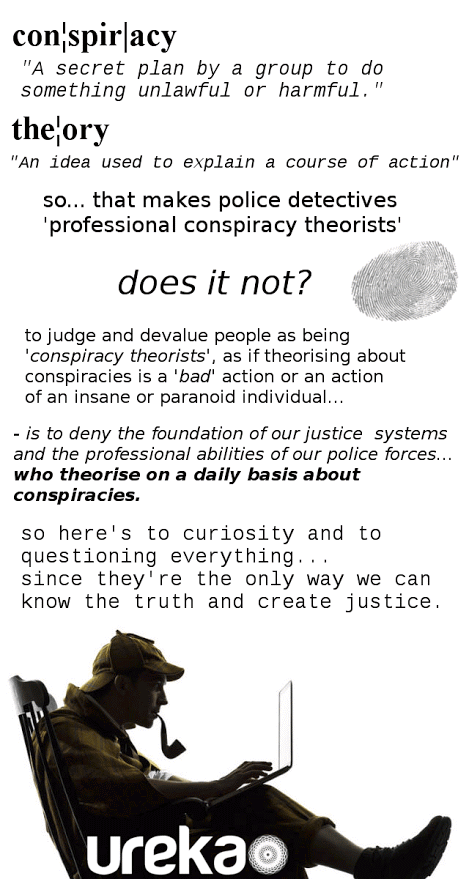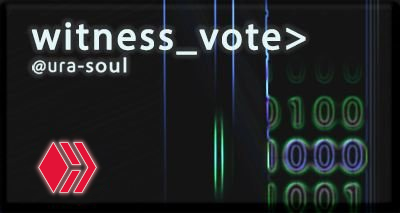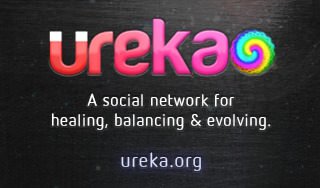As someone who knows the necessity of free thinking and removing limitations in order to reach truth and discovery in life, I have no problem at all with 'theories'. It's through theory that we can begin to explore new avenues of understanding and, indeed, this is part of the scientific method that has brought us basically all scientific discovery, ever!
As someone who pays attention in life and notices just how many people get arrested by police forces every day for all kinds of crimes, often involving groups of perpetrators working together, I have no problem at all with accepting that 'conspiracies' exist. In the US and elsewhere 'Conspiracy' is itself an actual crime which involves at least two people agreeing to commit a crime (and then at least one of them carrying out an overt act toward committing that crime).
Yet somehow, the drawing of these two worlds together opens up a Pandora's box of illogical claims and even potentially dangerous denial that could result in serious criminality going unchecked. Let's explore...
Who Owns A Conspiracy Theory?
As a free thinker who aims to structure his understanding of life on grounded facts and logic, it is clear to me that not all conspiracies are identified before the crimes are committed and so many real crimes may involve other parties who are never identified as 'co-conspirators'. I also see, then, that it is sometimes needed to theorise that other parties may have been involved in a crime as we look back through past events to try to understand what has taken place. It's important to reach actual truth in such events to produce a balanced outcome that doesn't sow discord in society.
The many TV shows and endless newspaper reports regarding crimes tell me that it's not just 'police' who are willing or able to research real crimes, many other people do too. In fact, police often call on non police people to provide them evidence if, for example, they 'see something suspicious'. So the people who are tasked with keeping the nation safe, specifically value the input from everyone else when it comes to doing their job. So, the professionals value the non professionals' insights when it comes to keeping track of crimes and the conspirators involved.
Often it isn't much more than a 'hunch' from a member of the public or an investigating police officer that leads to a clue that then leads to arrests. What is a 'hunch'? Well, it can be said that a hunch is an intuitive impulse about a situation where the facts aren't clear but feelings say things are a certain way. Sometimes there may be a 'hunch' or just a 'theory' that was generated through logic and reason - sometimes a hunch and a theory might go together.
So, as you can see, our entire policing system to some extent relies on both theory and the identification of conspiracy - even specifically valuing 'conspiracy theory'.

Maybe We Need To Be Conspiracy Theorists?
The reality is that there are far too many serious crimes taking place on Earth currently for the police to investigate, even if they wanted to and even if they were all squeaky clean themselves and not being directed from upper levels to conveniently overlook certain crimes for unspecified reasons. The reality here is that, in truth, in most if not all nations - the police have been corrupted to a significant degree. For example, a leaked report from the London Metropolitan police in 2002 made it abundantly clear that crime gangs use the Freemasons to corrupt police.
This perilous situation, where the average person is left without any guaranteed and really trustworthy protection in life, means that it is 100% healthy for people to be on the lookout for potential threats that may harm them or their families. Often, the best way they have to do this is through APPROPRIATE creation of theory when evidence suggests it may be needed. The theory can be shared and more evidence added over time by others. This is exactly what many people have been using the internet to do for a long time.
Both governments and police forces take their power FROM US, yet all too often we are misled into thinking something so illogical as that the opposite is somehow true. Given that we are effectively delegating our own right to self policing to others, it follows that we have that right to begin with and thus are completely rational and reasonable to use it of our own volition - yes, even without 'supervision'!
:)
Science vs. Conspiracy
Clearly, it is possible for such theories about possible conspiracy to be inaccurate, that is the nature of a theory. In science, it is normal for theories to be challenged and updated/deleted/replaced where necessary as the truth is ever more closely reached. The same is true for conspiracy theories. A key difference, though, between the majority of scientific theories and conspiracy theories is that the latter tend to result in one or more people potentially going to jail - which obviously means that perpetrators of crimes are highly motivated to make sure that the conspiracy theories are derailed before the truth is widely discovered!
Given the high stakes of conspiracy theories, it is understandable, that just like in science, the theories are hotly contested. However, another difference between conspiracy and scientific theory is that people are often motivated to make irrational and dishonest moves without knowing all the facts. Sometimes that includes promoting a theory as fact and sometimes it includes ridiculing a person or theory without knowing the facts. This may be done to try to gain power in some way, to damage an opponent or simply out of ignorance and denial.
Scientific theories, 'in theory' are left open to rigorously recorded experimentation and so every challenge to the theory brings us more potential for experiments and more certainty of with is true. Conspiracy theories, however, are often more messy and involve data and evidence that can be hard to acquire.
So while scientific theory is often a relatively nice clean package of information that can be processed in a predictable way; conspiracy theories are often awkward things which don't quite sit right with some people but which look great to others. Sometimes decades need to pass before thousands of hours of work can be put into exploring and finding evidence for a theory in useful ways before we are allowed a glimpse of proof that the theory is true or false.
Since there is a lack of formal process for conspiracy theorising, with no formal public forum (or often even acceptance), people sometimes make the mistake of thinking that something is more true simply because more people think it is true than think the opposite. The absence of a better way to assess the situation can introduce a variety of problems. Conspiracy theory can therefore be created with no solid foundation and be passed by word of mouth without being checked, building traction as it goes.
Social media platforms such as Youtube have often appeared to provide a kind of shared platform for discussion of such topics, but in reality they have long been censoring many topics that are rightly or wrongly considered 'conspiracy theories'.
Responsible Conspiracy Theory
The messiness of conspiracy theory is not a reason to invalidated it - remember that our entire justice system somewhat depends on it. We simply need to be cautious and rigorous when dealing with the ideas involved, in order to leave no stone unturned. We also need to be sensitive that there are real people's lives involved who may be affected by us making false claims. We may also invite legal cases if we falsely accuse someone who hears about it.
Unfortunately, what we see all too often are false claims passed off as facts, which claim theories are proven without the needed evidence, but also that theories are nonsense - also without the needed evidence.
We even see large swathes of people condemning dissenting voices in society as literally BEING 'conspiracy theorists' just for thinking differently - as if:
a) Conspiracy theory is a 'bad' thing.
b) A person can be purely defined as someone who creates conspiracy theories.
The lack of logic that is often present in such denigration of those who speak of and use conspiracy theories should only serve to be evidence of the incapacity of the one pointing the finger to think coherently.
However, this does not stop large numbers of people from joining forces to 'defend against and ridicule the conspiracy theorists' (sometimes at the suggestion of a politician who him/herself may well have a few skeletons in a closet somewhere nearby) without ever first engaging their own brains - all while claiming that it is the conspiracy theorists who are doing exactly what they themselves are doing!
Deep Irony
The irony here is thick - but these things are deeper than irony. Many people understand that it is possible to meet your reflection in life and this 'pro' vs 'anti' conspiracy theorist dynamic is one example.
'That which we hate the most in others' is often what we too are doing in a state of denial.
This can be a challenging lesson to learn, but it is worth learning, not least because in this case the next best theory to explain the actions of militant 'anti conspiracy theorists' is that they are actually criminals seeking to silence investigation into their own activities. ;)
Reaching agreement
What is needed here is for those who propose ideas to also provide solid evidence to back them up as best they can. This both includes both those who are proposing or supporting a particular theory and also those who are against the theory.
Many times a theory cannot be substantiated, but through communicating it, further evidence is brought to light. Sometimes a theory is seen to be false and proven to be so. In plenty of other situations, a claim may be made that a theory has been 'debunked' when it absolutely has not.
The challenge here is that no-one will really know what the truth is without their own diligent study and this is simply something that many people are not used to doing to a sufficient degree. In the cases where people are ready to do the research and work involved, they often simply choose not to for their own reasons - which may include that they judge in advance the theory is false and just move on (without actually knowing).
We are often busy people and we cannot all research everything, but if that is the case for you regarding a particular 'conspiracy theory', the smartest action to take may be to say NOTHING AT ALL! Why waste your energy fueling a side of a debate that you haven't even researched deeply? That is not honest or helpful.
Every time we lay in to a situation with our own 'opinion' that is not grounded in proper research, we simply muddy the waters and this, sadly, only serves the real criminals.
Wishing you well,
Ura Soul
View My Witness Application Here
View Some of My Witness Related Posts
Note: Witnesses are the computer servers that run the Hive Blockchain.
Without witnesses there is no Hive blockchain or DApps such as peakD and 3Speak... You can really help Hive by making your witness votes count!



Here, here!
Really appreciate this breakdown of the nuances involved with conspiracy, conspiracy theories and anti-conspiracy theories. It's all too easy to label and dismiss dissenting opinions or groups of people as "quacks" and "you people" while not providing any evidence in support - while supporting the prevailing opinions of the majority.
It's certainly the case that it often takes decades for vital information to come to light that supports certain conspiracy theories. Unfortunately, when significant evidence does surface it is often ignored or dismissed. Oftentimes, those arguing from the majority do not deem it worthy of revisiting or reexamining. In other cases, the majority position shifts and it is pooh-poohed, "yes, of course X did Z get over it, move on!" without really addressing the implications of, say, government involvement in criminal activity, war crimes or corruption.
This post relates closely with our research contest for #deepdives 19 "Confirmed Conspiracy Theories". We'll cross-post this article to the community as it is a valuable contribution. Thank you!
Thanks, well said! I feel like this is only able to continue due to denial and lack of self acceptance. People's fear has them programmed to do whatever deflects away from them if they might be wrong, even to the point of totally denying reality and leading society and self to destruction. Once a conversation has been weaponised, the defense mechanisms will often seek to end it rather then de-escalate and make sense out of it, which is yet another reason why keeping people terrified and in denial of how to heal fear is so 'valuable' to the empire builders and psychopaths!
ENGAGEtokens.!ENGAGE 25
Conspiracy theorists are people who are not scared to question - whether they turn out to be 'right' or 'wrong'.
-So what does that make the people who do not question everything?
I recently started using the phrase 'research deniers' ;)
Nice work! Thanks so much for your research!
You are welcome! thanks for reading.
ENGAGEtokens.!ENGAGE 25
"Conspiracy theorist", I have found, is a tool of the intellectually lazy to justify their lack of inclination to pursue avenues of knowledge and research that are foreign to them.
Anyone that researches deeply or #deepdives will undoubtedly be led to being called a conspiracy theorist. I know from experience and I'm sure a lot of of have had the same happen!
Agreed, and to your point about #deepdives being labeled "conspiracy theorists" I think a lot of people misunderstand what doing deep research is all about. First and foremost we're interested in investigative journalism and research but we're not afraid to dive into taboo and fringe subject matter. It's really a matter of being open to possibilities and definitely not parading around like we have all the answers as if we're the only ones that know the truth.
Good God, you've saved me weeks of research. I'll go back to writing my book. (No, I'm not being glib, this was amazing, thank you!)
Congratulations @ura-soul! You received a personal badge!
You can view your badges on your board and compare yourself to others in the Ranking
Do not miss the last post from @hivebuzz: